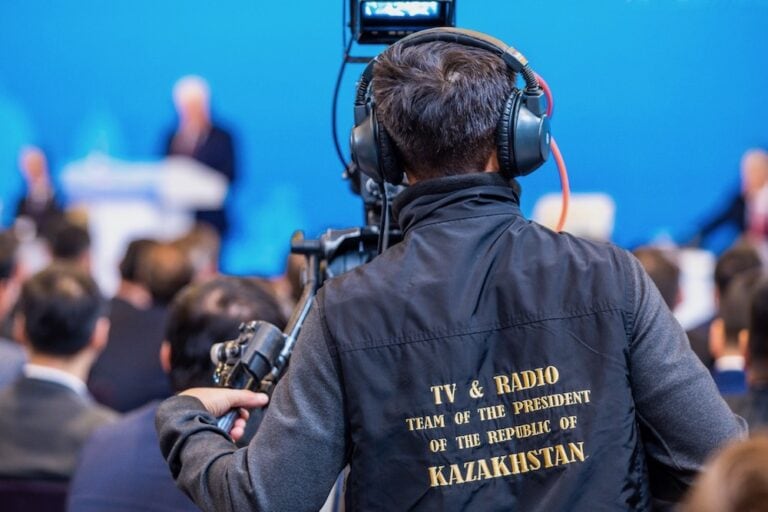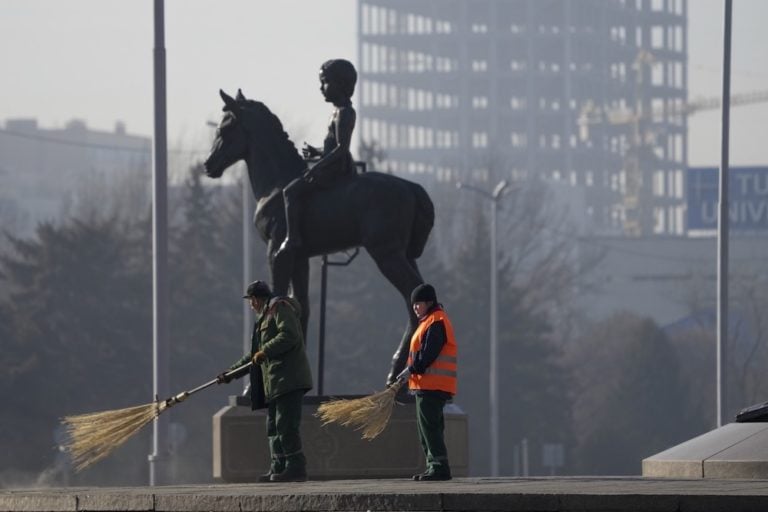The shutdown order issued by a district court in Almaty against the independent weekly newspaper Pravdivaya Gazeta is yet another example of Kazakhstan's determination to gag independent voices in the country, the Committee to Protect Journalists said on 25 February 2014, adding that the verdict should be overturned on appeal.
The shutdown order issued by a district court in Almaty against the independent weekly newspaper Pravdivaya Gazeta is yet another example of Kazakhstan’s determination to gag independent voices in the country, the Committee to Protect Journalists said today [25 February 2014], adding that the verdict should be overturned on appeal.
The Bostandyk District Court ordered the news outlet to shut down on Monday, local and international press reported. The verdict stemmed from a February 7 civil lawsuit filed by the district prosecutor who asked the court to close the outlet because of previous court rulings against the weekly and its alleged technical violations, according to the Almaty-based press freedom group Adil Soz. The newspaper is planning to appeal the verdict, Adil Soz said.
According to Adil Soz and news reports, Kazakh authorities have been harassing Pravdivaya Gazeta since the weekly began publishing in April 2013. Authorities confiscated the paper’s entire first print run, imposed fines against the newsroom, and suspended the paper’s production twice for up to three months after accusing the weekly of technical violations, including failing to indicate frequency of publication and exceeding the stated print run by 1,000 copies, among others, the reports said.
Pravdivaya Gazeta has reported on local and regional social and political events, including official obstruction to public meetings, prosecution of local rights activists, and the government’s attempts to seek extradition from Europe of an exiled opponent of President Nursultan Nazarbayev. The outlet also published the memoirs of the late Zamanbek Nurkadilov, a politician who, before his mysterious death in November 2005, publicly urged Nazarbayev to resign.
“We call on Kazakh authorities to immediately restore Pravdivaya Gazeta‘s right to report and publish, and we urge them to stop using alleged technical violations as pretext to silence an independent outlet,” CPJ Europe and Central Asia Program Coordinator Nina Ognianova said. “Media that criticize the policies of the Kazakh government are constantly besieged and pushed into leading a fugitive existence. The persecution of the remnants of a free press in the largest Central Asian state must cease once and for all.”
Kazakh authorities have consistently cracked down on independent and critical news outlets in the country, CPJ research shows. After news outlets reported on the December 2011 deadly suppression by police of a civil protest in the western city of Zhanaozen, authorities raided newsrooms, and interrogated and imprisoned journalists. In late 2012, Kazakh courts ordered dozens of news outlets and several broadcasters to shut down on accusations of extremism, and in early 2013 banned reporters of the shuttered Respublika newspaper from practicing journalism altogether.


